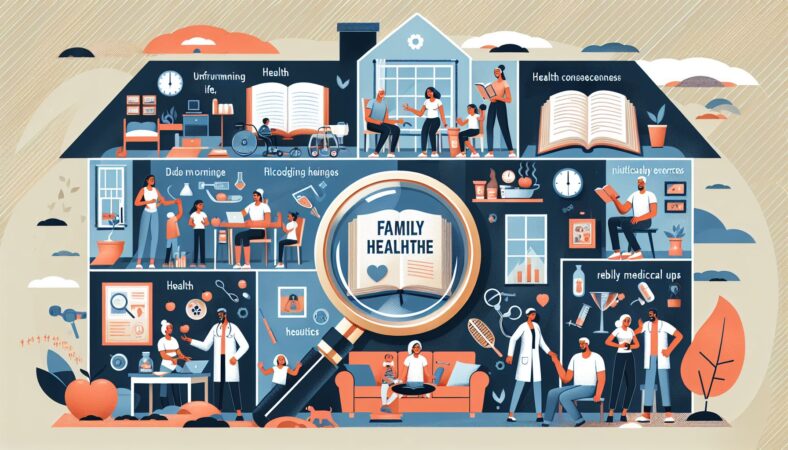Health is a precious asset that should be nurtured and maintained throughout our lives. For families, prioritizing healthcare is essential to ensure the well-being of every member. By adopting healthy habits and making informed choices, families can prevent diseases and promote a higher quality of life. One area that is particularly important to focus on is cancer prevention, as many cancers can be prevented through lifestyle changes and early detection. In this blog post, we will discuss how families can understand and implement family healthcare practices to live healthier lives.
Importance of Family Healthcare
Family healthcare encompasses a wide range of services aimed at promoting and maintaining the health of individuals and families. These services can include preventive care, screenings, vaccinations, and treatment of illnesses. By taking a proactive approach to healthcare, families can reduce the risk of developing chronic conditions and lead healthier lives.
One of the key aspects of family healthcare is cancer prevention. Cancer is a leading cause of death worldwide, and many types of cancer can be prevented through lifestyle choices such as healthy eating, regular exercise, and avoiding tobacco and excessive alcohol consumption. In addition, early detection through screenings and regular check-ups can increase the chances of successful treatment and recovery.
Adopting Healthy Habits
A healthy lifestyle plays a crucial role in preventing diseases and promoting overall well-being. Families can start by making small changes to their daily routines that can have a big impact on their health.
Eating a balanced diet that is rich in fruits, vegetables, whole grains, and lean protein can provide essential nutrients that support the immune system and reduce the risk of chronic diseases, including cancer. Limiting the consumption of processed foods, sugary beverages, and high-fat foods can also help maintain a healthy weight and reduce the risk of obesity, which is a risk factor for many cancers.
Regular physical activity is another important aspect of a healthy lifestyle. Exercise not only helps maintain a healthy weight but also boosts mood, reduces stress, and improves overall physical fitness. Families can engage in activities such as walking, biking, swimming, or playing sports together to make exercise a fun and enjoyable part of their routine.
Avoiding harmful substances such as tobacco and excessive alcohol is also essential for cancer prevention. Smoking is a leading cause of many types of cancer, including lung, throat, and mouth cancer, while excessive alcohol consumption can increase the risk of liver, breast, and colorectal cancer. By avoiding these substances, families can significantly reduce their cancer risk and improve their overall health.
Importance of Regular Check-ups
Regular check-ups with a healthcare provider are an essential part of preventive care and early detection of diseases. During a check-up, a healthcare provider can assess the overall health of family members, screen for potential health issues, and provide guidance on maintaining a healthy lifestyle.
Screenings for cancer, such as mammograms, colonoscopies, and prostate exams, can detect cancer at an early stage when treatment is most effective. Depending on age, sex, and family history, healthcare providers may recommend specific screenings to assess cancer risk and detect potential issues early on.
In addition to screenings, regular check-ups allow healthcare providers to monitor chronic conditions, provide vaccinations, and offer guidance on managing existing health issues. By staying up to date on preventive care and receiving regular check-ups, families can take proactive steps to maintain good health and prevent diseases.
Conclusion
Family healthcare is a vital aspect of promoting and maintaining the health of every family member. By adopting healthy habits such as eating a balanced diet, engaging in regular physical activity, and avoiding harmful substances, families can reduce the risk of chronic conditions and improve their overall well-being. Cancer prevention is a key component of family healthcare, and by staying informed about risk factors, adopting healthy lifestyle choices, and receiving regular screenings, families can take proactive steps to prevent cancer and other diseases. Regular check-ups with a healthcare provider are essential for monitoring health, screening for potential issues, and receiving guidance on maintaining a healthy lifestyle. By prioritizing family healthcare and making informed choices, families can lead healthier lives and enjoy a higher quality of life for years to come.
